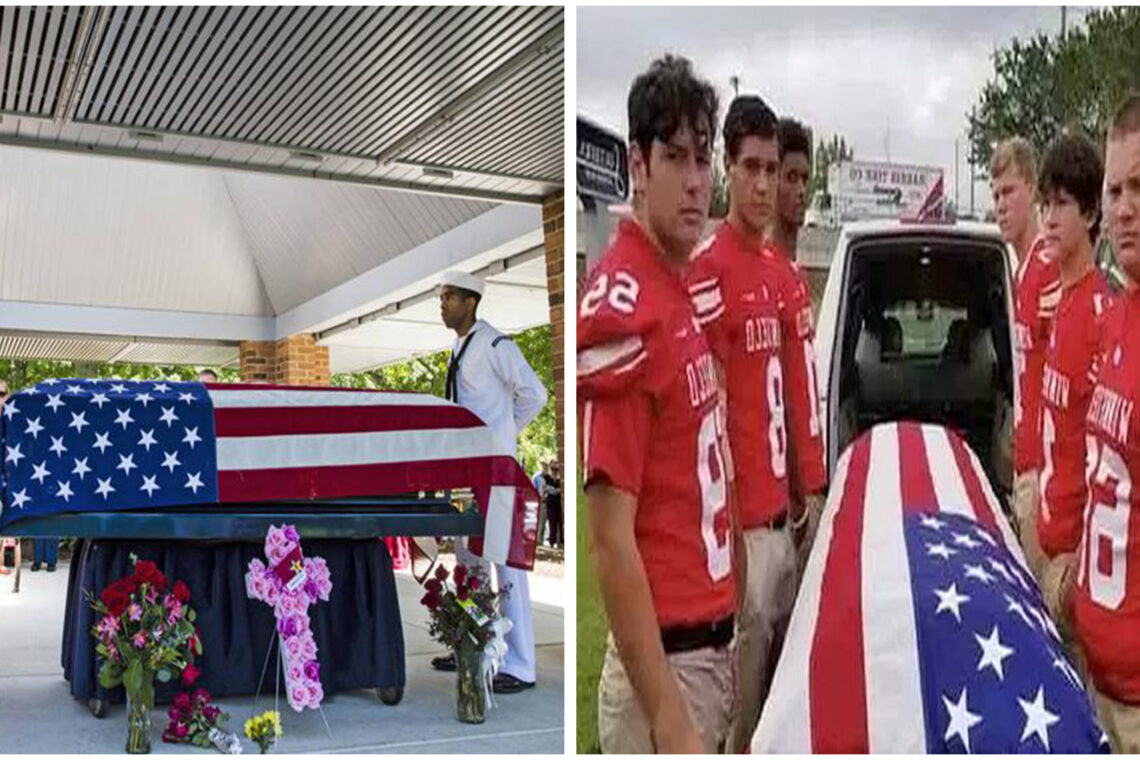
It is essential to recognize the profound respect and admiration that our veterans earn through their unwavering service. Their sacrifices often go beyond personal loss, as they devote their lives to protecting the freedoms we enjoy. As time passes and the years weigh heavily on our aging veterans, their remarkable deeds and stories can sometimes fade from public memory. It is stories like that of Thomas Hunter that remind us of the importance of honoring their legacy, inspiring us all to uphold a tradition of gratitude and recognition.
Thomas Hunter’s military service spanned from 1942 to 1949, a period marked by the monumental events of World War II. Notably, he participated in the D-Day invasion, a pivotal moment in history that altered the course of the war. His courage and commitment during such a critical time in our nation’s history exemplify the sacrifices made by countless individuals who fought valiantly for their country. Upon returning home after the war, however, Hunter did not settle down as many might expect. He never married, nor did he start a family, and though he had a large family of eleven siblings, he ultimately outlived them all. By the time of his passing at the age of 93, the only relatives remaining were a few nieces, who were left to navigate the responsibilities of planning his final farewell.
As they began the challenging process of arranging Hunter’s funeral, his nieces found themselves facing a poignant dilemma. With no immediate family members available to honor his memory in a personal way, they turned to the community for support. Recognizing the profound impact Hunter had on their lives and the community, Bryan Price, the funeral director responsible for the arrangements, reached out to Lyn Bankston, a local football coach. Price hoped that Bankston could rally some of his players to assist in carrying the casket, an act of solidarity and respect.
Coach Bankston understood the significance of this request. He gathered six of his players—Matthew Harrell, Brett Jurek, Justin Lawson, T.J. Homan, Christian Evans, and Lee Estay—to discuss the possibility of participating in the funeral. Their response was immediate and enthusiastic; each young man expressed a heartfelt willingness to honor a veteran they had never met but whose sacrifices they understood and appreciated. Their commitment to honoring Mr. Hunter resonated deeply with Bankston, who noted that these young athletes recognized the importance of such gestures, even if they were not personally acquainted with him.
On the day of the funeral, the atmosphere was solemn yet filled with an unmistakable sense of purpose. The six teenagers, dressed in their football uniforms, arrived at the venue, ready to fulfill their duty with dignity and respect. Their presence was a poignant reminder of the community’s commitment to remembering its heroes, demonstrating that even a new generation can recognize and appreciate the sacrifices made by those who came before them.
As they carried Hunter’s casket, the young men performed their roles with grace and reverence. They honored the life of a veteran who had dedicated his youth to the service of his country. The ceremony was a tribute not only to Thomas Hunter but also to the values of service, sacrifice, and respect that are vital to any community. U.S. Representative Ralph Abraham acknowledged the significance of their actions, emphasizing that despite not having known Hunter personally, the young men understood the intrinsic value of honoring a veteran’s legacy. Abraham articulated a universal truth: “Every veteran deserves to die with dignity and be honored for the sacrifices he made in defense of this nation.”
Such expressions of respect and honor are critical in maintaining a connection between generations. They remind us that the contributions of our veterans should never be forgotten, regardless of the passage of time. This story illustrates a powerful lesson in community engagement, showcasing how the younger generation can carry forward the torch of remembrance and respect. The act of carrying Hunter’s casket by the football players serves as a metaphorical passing of the baton, a moment where the legacy of one generation is embraced and honored by the next.
This heartwarming account highlights the importance of community involvement in commemorating the lives of those who have served. It serves as a reminder that honoring veterans transcends mere acknowledgment; it requires active participation and a commitment to ensuring their stories are preserved. Each act of remembrance contributes to a larger narrative that celebrates their bravery and sacrifices, reinforcing the values of honor and respect.
In a world where distractions abound and the hustle of daily life can overshadow important moments, stories like this encourage us to pause and reflect. No veteran should ever be forgotten for their sacrifices, and the collective actions of individuals—whether through formal ceremonies or personal gestures—are vital in preserving their legacies. As we continue to navigate our lives, let us strive to honor the sacrifices of veterans like Thomas Hunter, ensuring that their contributions remain a cherished part of our history and collective memory.
The actions of those young men stand as a powerful testament to what it means to honor a veteran. It is a call to action for all of us to engage with our communities, uphold the values of respect and gratitude, and foster connections that bridge generations. In doing so, we not only celebrate the past but also build a future grounded in appreciation for the sacrifices that have shaped our present. Through their efforts, the memory of Thomas Hunter and countless others will live on, inspiring future generations to honor the legacies of those who served.